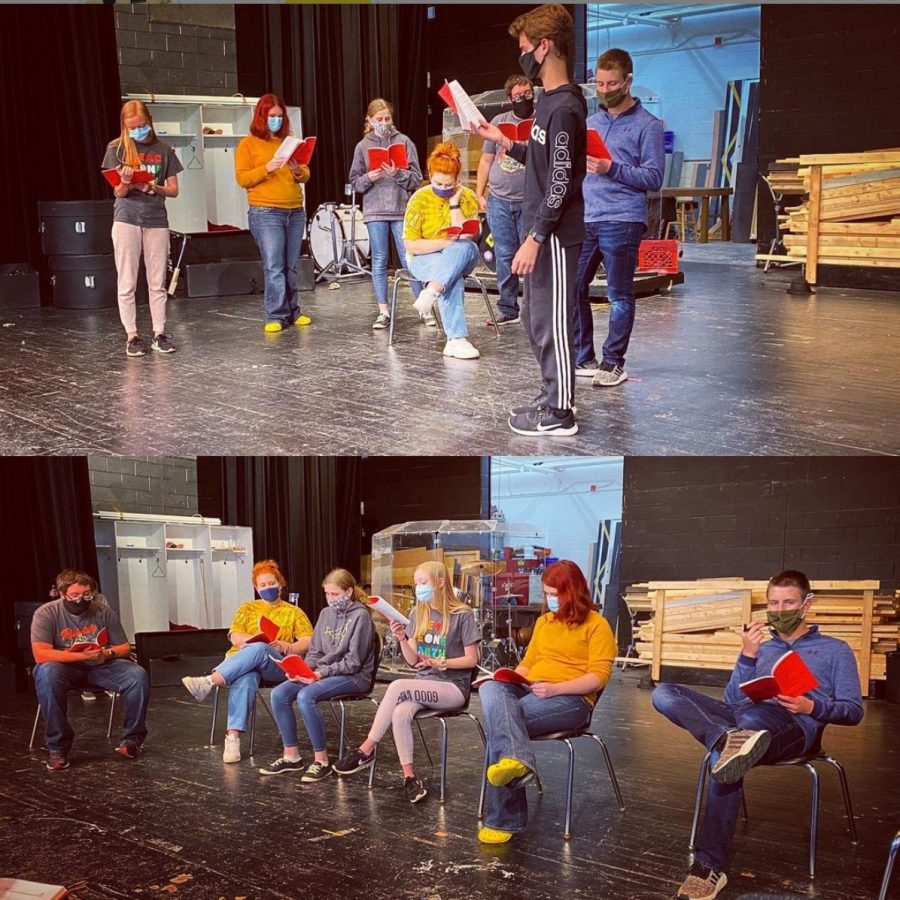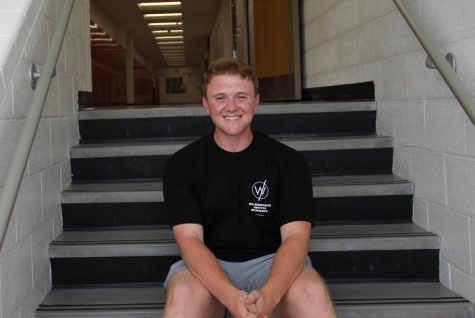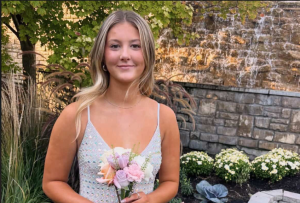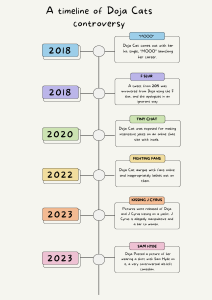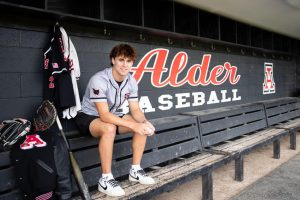The world of the performing arts in a pandemic
December 4, 2020
The world of the performing arts has been drastically affected by the Covid-19 pandemic. With numerous health restrictions, performing and rehearsing have become much harder, but the Jonathan Alder performing arts staff have adapted to these new circumstances.
With fast-approaching performances, the performing arts staff has had to get creative with some aspects of rehearsals and practices. “For the longest time we weren’t allowed to sing indoors because of the health mandate for the county,” Mr. Mayes, the choir teacher and Show Choir directors says. “But we were able to get new guidelines about three weeks ago, so we’re now allowed to sing indoors and it has opened the door to so many things.” For the Show Choir, this means they are able to move inside, but their rehearsals are more spread out than usual. “We’re six feet apart while dancing, and then we take up the entire auditeria floor,” he says.
For band, with practices being solely in-school, the rules for practices are different. “The restrictions say that we can play for a maximum of thirty minutes before we have to stop and let the air circulate through the room enough,” band director Mr. Hennig says. “So, what that means is it’s actually not going to change too much time-wise from what we did before, but we also need to change the room, because the health restrictions say we need to use the largest room available,” he says. “That will probably be a lot of using the gym, using the stage depending on availability, and working within that to help make sure that we are complying with the health restrictions.”
Another group that needs those large spaces for rehearsal is the winter play, but there are fewer differences in rehearsals than previous years. “We’re not going to have everyone [at rehearsals]; that’s kinda similar to previous years where we don’t need everybody there,” Ms. Tinberg, the director of the school play (Clue), says. “We’re going to try to be as distanced as possible.”
There are several options for the play, Tinberg says. “If everything goes well…then we will have four performances. We do have two live streams that are going to be available as well, so if people aren’t comfortable with going, there will be livestreams,” she says. “So that’s kind of Plan A, Plan B if we need to have that, will be to increase the livestreams and have [the performance] totally streamed,” she says. “Part of the reason I chose this specific play is because we can switch to a stay at home version as well,” she says. “I thought it would be good because I didn’t want to do all this work, and then we have to cancel it, so at the very least there’s some things that we can do to perform it virtually distant.”
Utilizing technology has become a major part of all types of performances. “For the December concert, I am going to record each choir,” Mayes says, “and I’m going to put together a virtual concert.” The annual JAM Fest, he says, will also be virtual. “But for things later in the spring like the show choir’s show, their show–the weather project is what we’re calling it–that’s going to be an in person event, and so is the musical later in April.”
Band performances also will likely rely on technology for performances. “What I’ve seen other schools do and what I’m leaning towards is crafting sort of a virtual concert,” Hennig says, “where we either set a time to meet outside of the school day or meet during school depending on how the classes are structured, and record, and put it together and distribute it out to the community that way”
Mayes says that masks are a requirement almost all the time. Hennig agrees, stating, “Students will have to wear masks whenever they are not actually playing,” Hennig says. “What that means is, say I’m rehearsing one specific section, whoever is not playing at that time will have to put their mask on,” he says. “It’s not like they get a mask break for the entire period.”
Program shutdowns are not a huge worry amongst the performing arts staff. “Too many students rely on the band for some sense of normalcy or some sense of acceptance and belonging, and I know that our administrators know and understand that,” Hennig says. “I’ve learned that with band, we always find a way.”
Spread in the music programs has not been an issue yet. “I don’t think we would ever get shut down, unless we get a large number of Covid cases in our program,” Mayes says. “I can’t be one hundred percent confident of this but, from what we know, our program has had no spread or no cases,” he says. “We’ve been really safe and we’ve done a good job of containing what has happened.”
Tinberg emphasized she is on the more cautious side to limit the chances of a program shutdown. “I’m going to be a stickler for making sure everybody is wearing masks and making sure people aren’t just going out and doing whatever,” she says. As with any program, Tinberg says, “I just want to make it clear, if you’re going to be in this, then this is a commitment you’re making to the rest of the cast and me and the crew. So don’t go to a bunch of big parties, don’t do stuff that’s going to impact the play.”

